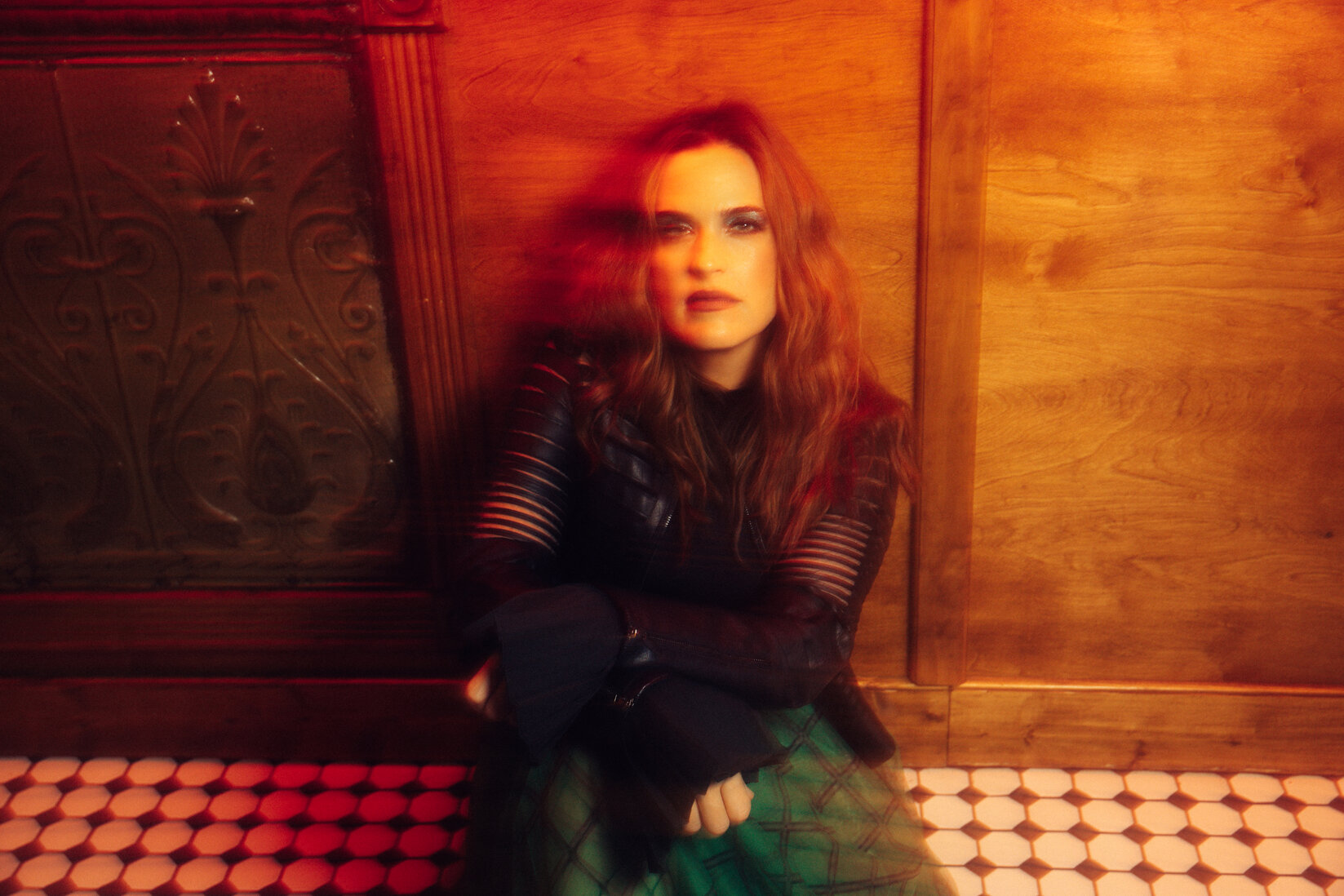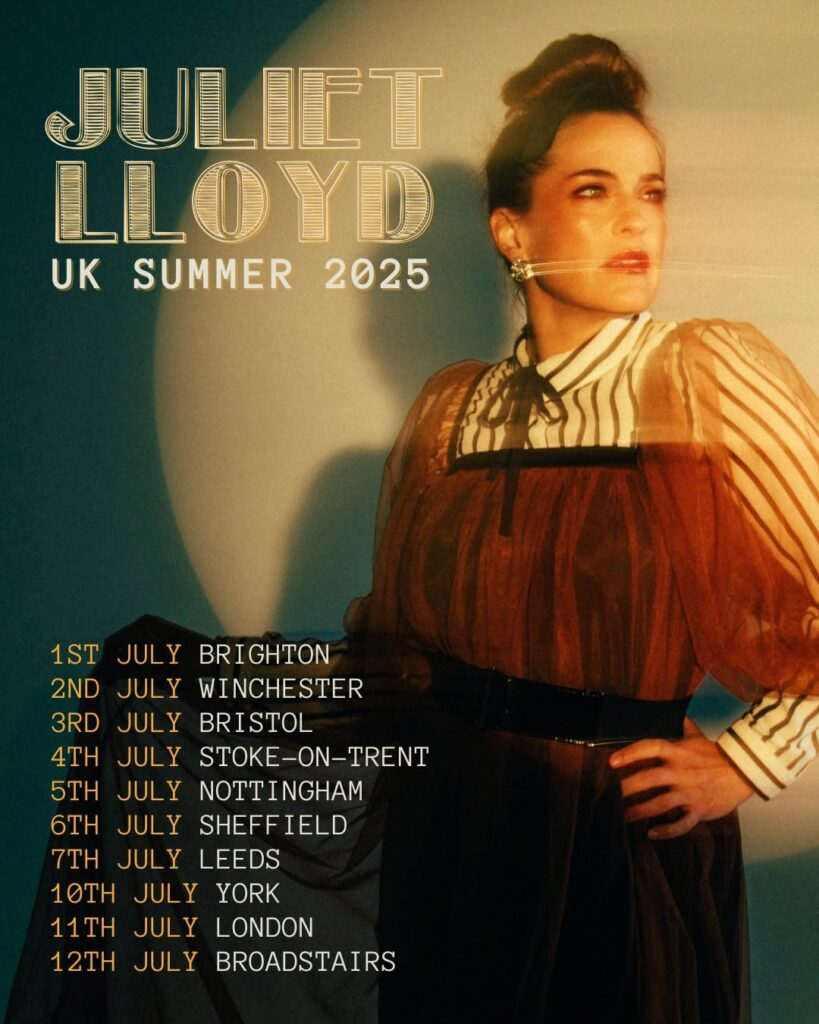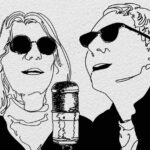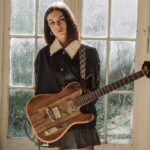
Juliet Lloyd’s return to music after a decade away feels less like a comeback and more like a beautifully measured homecoming. With songs that balance emotional depth and melodic ease, she writes not just to express but to connect with honesty, wit, and a quiet strength. As she embarks on her first UK tour, Lloyd brings with her a collection of songs steeped in honesty, delivered with the kind of quiet confidence that turns a performance into a conversation.
Ten years off, then you come back with Carnival. What changed more in your writing: the music you loved or the life you lived?
I think it’s more the latter. Certainly, I’ve been exposed to all kinds of new musical inspirations, but the bigger change for me was that I was ten years older, had ten years’ worth of life experiences and time to process and make sense of previous experiences. I’d say I was ten years wiser, but I’m not sure that’s totally true. There were many times during that decade where I thought I couldn’t call myself a songwriter anymore because I hadn’t written a song, so I think it says a lot that what drew me back was feeling like I needed to write again because I had things I needed to say.
You’ve described your style as “non-monogamous” musically speaking. So what kind of emotional fidelity does a Juliet Lloyd song demand from a listener? Are we meant to settle in or be swept away?
I think most of my newer songs are meant to be settled into – because I want listeners to connect with them and feel like they can see themselves in the story or experience. I have a few ‘swept away’ songs where it’s more about the vibe, but I think if I can inspire a lasting connection to someone else through a particular lyric, that’s when I’m happiest.
In your single ‘Wild Again’, you turn a story about a whale into a meditation on kindness and absurdity. Is metaphor your escape hatch from autobiography or just a cleverer way to say this is me too?
Post-taking time away from music, I think everything I write is at least a little bit autobiographical, so it’s not something I want to shy away from or hide. So yes, every song is hopefully saying to the listener ‘this is me too’ – and ‘this is probably you too, and that’s okay, we’re all okay.’ I’d like to think it’s clever sometimes, but without feeling like I’m trying to be clever.
You walked away from music because it stopped feeling good. Coming back, what deal did you strike with yourself? Did it involve forgiving the music industry or just ignoring it?
Coming back, I’ve had to remind myself – almost every single day – that what matters is the process of creating and sharing music, because literally everything else that has to do with outcomes is out of your control. And that includes all the terrible parts of being in the music industry. I wouldn’t say I’ve forgiven them so much as resigned myself to the fact that the system is inherently so broken and the best we can do is create for the sake of being creative.
I can’t ignore it completely, and I have days where if I get into the trap of doom scrolling on Instagram and comparing myself to other artists and saying ‘why are they on that festival’ or ‘why can’t I play that room,’ then I don’t feel like writing songs. Lately I’ve found that focusing outward – showing up for my community of fellow musicians, writing and collaborating with other artists as much as I can – has been really helpful for my mental health and has made music feel “good” again, so maybe that’s the secret?
Your early work got compared to Norah Jones. You resisted it then and embraced it later. So if someone today called you the Fiona Apple of Americana, would you nod, roll your eyes, or start writing your next chorus?
I really like that label actually – I may steal that. I used to think about labels as being a limiting device, a bucket someone would put you into that you’d never be able to escape. But I recognize that there’s value in them, because it gives a potential listener a frame of reference and a way in that they otherwise might not have. So I’d just start writing my next chorus I think, and I don’t think at this point that I’d feel too much pressure to either conform to it or reject it in the next song.
This summer marks your first tour of the United Kingdom, a place where storytelling in song has long found a deeply attentive and affectionate audience. What are you most looking forward to as you bring your music to these intimate venues?
It’s exactly what you said – I’ve heard such amazing things about how appreciative UK live music fans are, and I’m absolutely thrilled to have the opportunity to play these intimate rooms and get to tell stories and play a bunch of melancholy ballads. Plus, I get to reunite with two of my original bandmates and classmates from our days at Berklee College of Music, who are both UK natives. They’re going to play a bunch of these shows with me, and we haven’t played together in almost 20 years.

Last one. “If only there was a way you could bottle up that feeling.” Do you think you’ve finally figured out how to do it or are you just chasing the echo like the rest of us?
I definitely have not. It’s a never ending chase. Lucky for me, I now trust that there will always be another song you can write – I am living proof of that – but I will never feel like I’ve perfectly captured or bottled up anything. And the beauty is in the chase!




